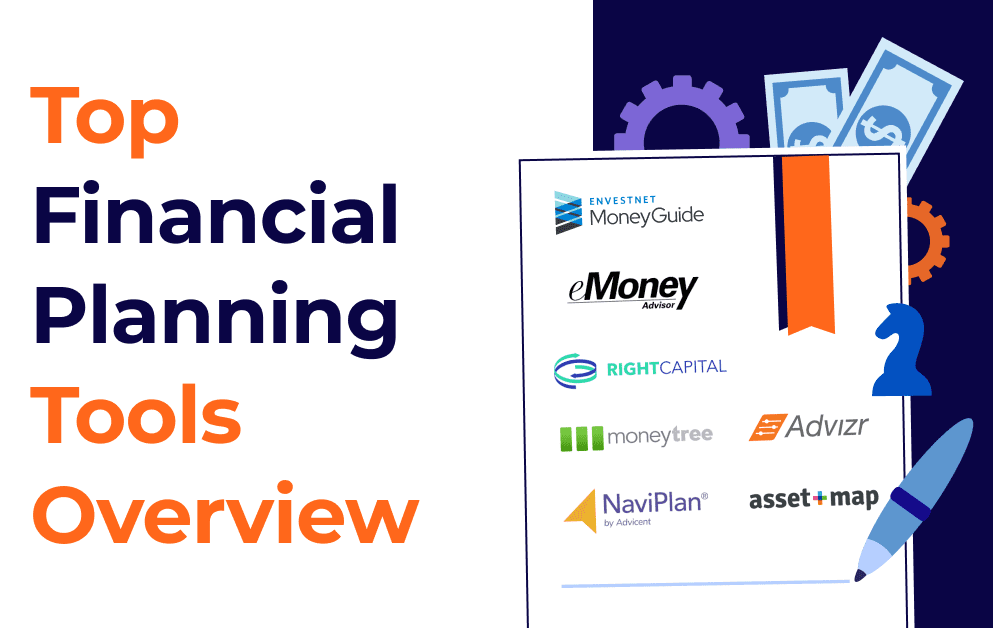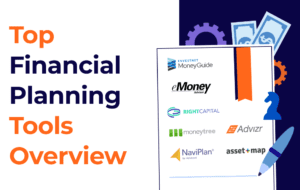1. Introduction
Effective financial planning is the foundation for achieving financial success and security. In today’s digital age, a wide range of financial planning tools is available to assist individuals in managing their finances, tracking expenses, planning for retirement, and more. This article explores various financial planning tools that can empower you to take control of your financial future.
2. Importance of Financial Planning
Financial planning is crucial for individuals and families to set goals, manage cash flow, save for the future, invest wisely, and protect their financial well-being. Utilizing financial planning tools can streamline the process, provide insights, and facilitate informed decision-making.
3. Budgeting Tools
Spreadsheets
Spreadsheets, such as Microsoft Excel or Google Sheets, are versatile budgeting tools. They allow you to create custom budgets, track income and expenses, and analyze your financial situation. Spreadsheets offer flexibility and can be tailored to your specific needs.
Personal Finance Apps
There is a wide array of personal finance apps available for budgeting, including Mint, YNAB (You Need a Budget), and PocketGuard. These apps connect to your bank accounts, categorize transactions, and provide visual representations of your spending habits. They offer convenience and real-time insights into your financial picture.
4. Expense Tracking Tools
Receipt Scanning Apps
Receipt scanning apps like Expensify or Shoeboxed simplify expense tracking by allowing you to capture and store digital copies of receipts. These apps use optical character recognition (OCR) technology to extract relevant information and categorize expenses automatically.
Expense Management Software
Expense management software, such as QuickBooks or Zoho Expense, helps individuals and businesses track and manage expenses efficiently. These tools streamline the process of recording expenses, generating reports, and simplifying reimbursement procedures.
5. Retirement Planning Tools
Retirement Calculators
Retirement calculators, like those offered by Fidelity or Vanguard, provide estimates of the amount you’ll need to save for retirement based on your current financial situation and goals. They consider factors such as age, income, savings rate, and expected investment returns.
Online Retirement Planning Platforms
Online retirement planning platforms, such as Betterment or Personal Capital, offer comprehensive retirement planning solutions. These platforms provide automated investment management, retirement savings guidance, and projections to help you plan for a comfortable retirement.
6. Investment and Portfolio Management Tools
Robo-Advisors
Robo-advisors, such as Wealthfront or Betterment, automate investment management using algorithms. These platforms create and manage diversified portfolios based on your risk tolerance and goals, making investing accessible and cost-effective.
Investment Tracking Apps
Investment tracking apps, like SigFig or Morningstar, allow you to monitor your investment accounts, track performance, and receive personalized insights. These tools provide a holistic view of your investment portfolio and help you make informed decisions.
7. Tax Planning Tools
Tax Filing Software
Tax filing software, such as TurboTax or H&R Block, simplifies the process of preparing and filing taxes. These tools guide you through relevant deductions, credits, and forms, ensuring accurate and efficient tax filings.
Tax Estimators
Tax estimators, like TaxCaster by TurboTax, provide estimates of your tax liability based on your income, deductions, and credits. These tools help you plan ahead, anticipate tax payments, and optimize your tax situation.
8. Debt Management Tools
Debt Payoff Calculators
Debt payoff calculators, such as Undebt.it or Credit Karma, help you create a repayment plan for your debts. These calculators consider factors like interest rates and payment strategies, empowering you to become debt-free faster.
Debt Consolidation Tools
Debt consolidation tools, like LendingClub or SoFi, allow you to consolidate multiple debts into a single loan with a potentially lower interest rate. Consolidation simplifies repayment and may help you save money on interest over time.
9. Savings and Goal Tracking Tools
Savings Apps
Savings apps, such as Acorns or Digit, automate the process of saving money by rounding up purchases or analyzing your spending patterns. These apps transfer small amounts to a designated savings account, helping you build savings effortlessly.
Goal Tracking Software
Goal tracking software, like Trello or GoalsOnTrack, enable you to set financial goals, create action plans, and track your progress. These tools provide visual reminders and accountability, increasing your chances of achieving your financial objectives.
10. Estate Planning Tools
Will Creation Software
Will creation software, such as LegalZoom or Quicken WillMaker, offers templates and guidance to help you create a legally binding will. These tools ensure that your assets are distributed according to your wishes and simplify the estate planning process.
Estate Planning Platforms
Estate planning platforms, like Trust & Will or Rocket Lawyer, provide comprehensive solutions for estate planning. These platforms offer services such as creating trusts, designating beneficiaries, and establishing power of attorney.
11. Education Planning Tools
College Savings Calculators
College savings calculators, like Savingforcollege.com or Vanguard’s College Savings Planner, assist in estimating the future cost of education and determining the amount you need to save. These tools help you develop a plan to fund your children’s education.
Education Planning Websites
Education planning websites, such as CollegeBoard or Federal Student Aid, provide information on financial aid, scholarships, and student loans. These resources guide you through the process of planning for education expenses.
12. Risk Assessment Tools
Risk Tolerance Questionnaires
Risk tolerance questionnaires, available on platforms like Morningstar or Vanguard, assess your willingness to take on investment risk. These questionnaires help you understand your risk preferences and guide you in choosing appropriate investments.
Risk Assessment Software
Risk assessment software, such as Riskalyze or FinaMetrica, utilizes advanced algorithms to evaluate your risk profile. These tools quantify your risk tolerance and help align your investments with your comfort level.
13. Conclusion
Utilizing financial planning tools can significantly enhance your ability to manage your finances, set goals, and make informed decisions. From budgeting and expense tracking to retirement planning and investment management, these tools empower individuals to take control of their financial lives. Consider incorporating relevant tools into your financial planning process to achieve greater clarity, organization, and success.
14. FAQs
Are financial planning tools secure?
Most reputable financial planning tools prioritize data security and use encryption to protect your personal information. However, it’s important to review the privacy policies and security measures of any tool you use.
Do I need to pay for financial planning tools?
While many financial planning tools offer free versions, some may have premium features or require a subscription fee. Assess your needs and budget to determine if the additional features are worth the cost.
Can financial planning tools replace the need for a financial advisor?
Financial planning tools can provide valuable insights and guidance, but they may not replace the personalized advice of a qualified financial advisor. Consider your specific circumstances and goals when deciding whether to seek professional assistance.
Which financial planning tools are best for beginners?
Budgeting apps like Mint or YNAB, along with retirement calculators from reputable financial institutions, are excellent starting points for beginners. They offer user-friendly interfaces and helpful guidance.
How often should I update my financial plan?
Regularly review and update your financial plan, particularly when there are significant life changes, such as marriage, career shifts, or the birth of a child. Reassessing your plan annually or semi-annually is a good practice to ensure it remains aligned with your goals and circumstances.
Related
Financial Planning For Freelancers



1 thought on “Financial Planning Tools”